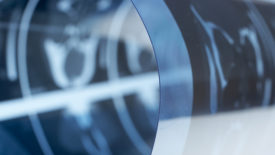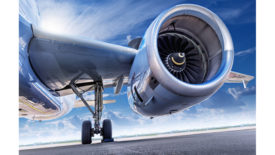NDT
NDT | Back 2 Basics
Artificial intelligence and machine learning approaches in additive manufacturing offer substantial merit in meeting the industry’s needs.
Read More
NDT | Remote Visual Inspection
The Ongoing Development of Remote Visual Inspection
Remote Visual Inspection enables cost-effective, quality surface inspections of difficult-to-see components without destroying them.
June 12, 2024
NDT | Robotics
NDT Robotic Path Planning: Automatic Methods for Ultrasonic Scanning Paths Generation
Optimal robotic paths are generated automatically to match part geometries.
June 11, 2024
NDT | AS9100
A Guide to Understanding and Achieving AS9100 Certification
In an industry where precision and reliability are non-negotiable, AS9100 emerges as an essential standard.
June 11, 2024
NDT | NDT in Aerospace
Flaw Detection in Aircraft Engine Fan Components using Automated Ultrasonic Technologies
As the number of flights is expected to keep increasing over the years, flaw detection is critical to safe air travels.
June 10, 2024
Management
Rebuilding Boeing’s Quality: A New Approach to Manufacturing Excellence
The heart of Boeing’s manufacturing operations lies in its ability to deliver flawless aircraft to customers.
June 10, 2024
Quality Management
The Ever-Changing Life of a Quality Management System?
Perhaps the most significant positive impact of QA programs is the improvement in customer satisfaction.
May 22, 2024
NDT | X-ray CT
High Speed X-ray Computed Tomography for Quality Control
Advances in X-ray computed tomography enable rapid nondestructive, 3-dimensional inspection of die casted and molded parts.
May 20, 2024
NDT | Standards
Best Practices for AS9100 Certification in the Aerospace Industry
If you are a quality management professional or part of an organization in the aerospace and defense industry, seeking AS9100 certification can be critical to your success.
May 18, 2024
NDT | Standards
Integrating SHE Requirements into ISO 9001:2015 and AS9100D Systems
Learn more
May 18, 2024
Stay in the know with Quality’s comprehensive coverage of
the manufacturing and metrology industries.
eNewsletter | Website | eMagazine
JOIN TODAY!Copyright ©2024. All Rights Reserved BNP Media.
Design, CMS, Hosting & Web Development :: ePublishing











